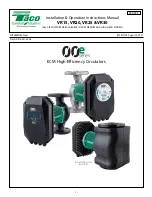
Product overview
EL600x, EL602x
14
Version: 4.6
2
Product overview
Technology
The EL600x and EL602x serial interface terminals enable the connection of devices with an RS232 (or
RS485 / RS422) interface. In the case of the EL600x, the data is exchanged with the controller in full duplex
mode; in the case of the EL602x, half duplex mode is additionally possible. The terminal has one receive
buffer an one transmit buffer per channel, see technical data. Data transfer between the terminal and the
controller takes place via a handshake.
The factory setting of the terminals is:
• 9600 baud
• 8N1: 8 data bits, 1 stop bit, no parity
• in the EL600x the RTS/CTS control is active
• the EL602x operates in full duplex mode with deactivated point-to-point connection.
Basic principles
During transfer of several bytes of data, the data (x bytes or 8*x bits in total) are sent in individual telegrams
containing 7 or 8 bits, based on the coding specification (e.g. 7E2 or 8N1). A telegram consists of:
• Start bit
• Data bits (7 or 8, starting with the LSB [least significant bit])
• Optional: parity bit
◦ "E" EVEN: The parity bit is set by the sender such that the parity is even
◦ "O" ODD: The parity bit is set by the sender such that the parity is odd
◦ "N" NOT: no parity bit
◦ "M" MARK: The parity bit is set to 1 by the sender
◦ "S" SPACE: The parity bit is set to 0 by the sender
• Stop bit (1 or 2)
Accordingly, the coding specification 8N1 means: 8 data bits, no parity bit, 1 stop bit.
If 7-bit coding is selected, of each data byte that is transferred from the PLC to the terminal via the cyclic
process data, only the lower 7 bits are sent. In other words, if 10 bytes of data (consisting of 8 bits) are sent
to the EL60xx, 10 telegrams of 7 bits each are sent.
If 9-bit coding is selected, the 16-bit process data interface must be used. The terminal then expects the 9
useful bits in the lower 9 bits of the 16-bit word.
Frequency
The frequency of the data transfer must be known in the sender and receiver and match within a few
percent, in order to ensure that the receiver can correctly detect any changes in level on the line.
Handshake
An additional handshake between the sender and the receiver can be used so that the receiver can indicate
that it is ready to receive. The EL60xx supports two types of handshake:
• via special RTS/CTS data cables
◦ This features must be activated in the CoE.
◦ Only possible with EL6001/EL6002.
• via special data telegrams
◦ This features must be activated in the CoE.















































